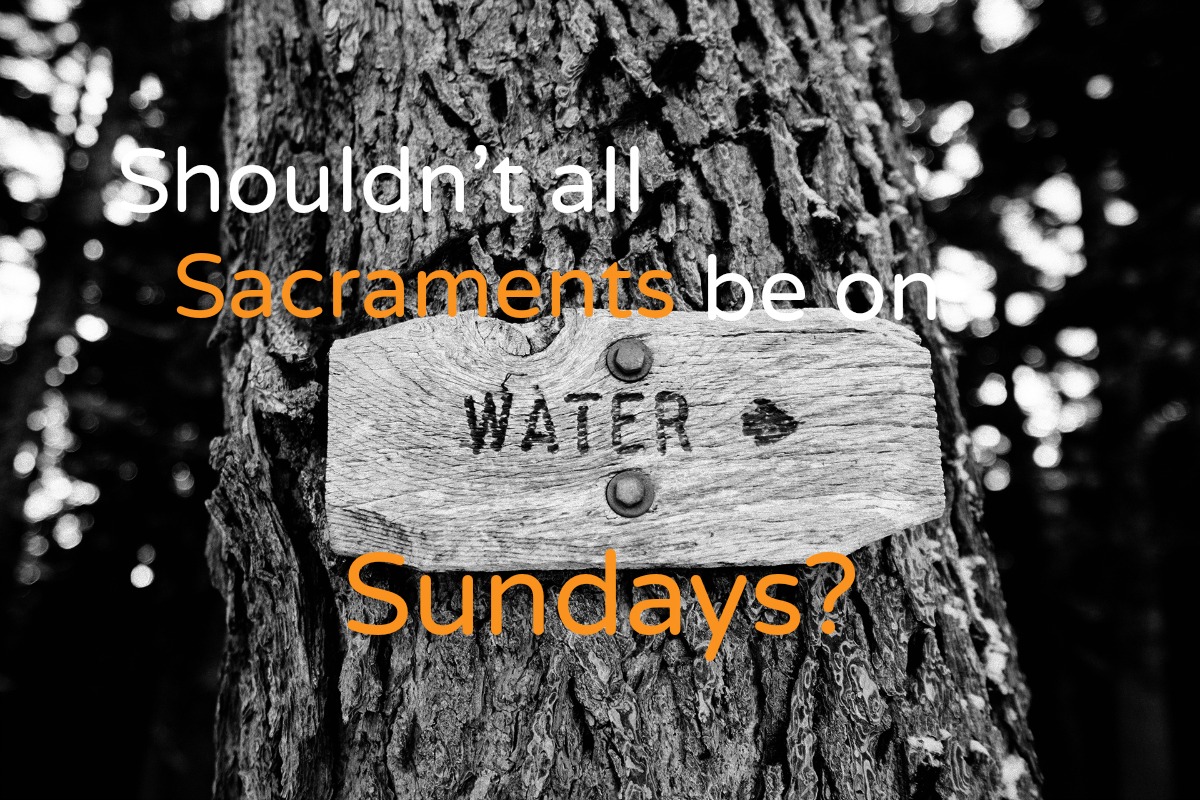a Should’ve Asked Question
Speaking to people much older than myself about baptism, I hear some pretty interesting things. First among them is how their children were baptized.
Many of the people I’ve met in ministry have an experience of gathering with family on a Saturday for the baptism of their children. This practice is often referred to as “private baptism” and in the last forty years has become increasingly unacceptable to the church.
I have to say that the whole thing is pretty alien to me. My whole life, baptisms were done in church on Sunday morning. That’s my experience of it.
In rediscovering the place of baptism in the church and embracing the centrality of Holy Baptism and Holy Eucharist as our primary sacraments, the Episcopal Church in particular has put a great deal of emphasis in making these two the central part of our faith commitment and our place as a church community. I take “private” to mean those sacramental moments in which the group gathered doesn’t represent the whole community.
Private Baptism and Eucharist, then, do not share the public and communal character embedded in the sacraments. When the community is invited to hold up this person in faith, it is a vow of the community, not a parent or friend, for example.
Certainly pastoral exceptions are frequently made. Hospital rooms, bedside vigils, and moments of great fear and hope are certainly exceptions the church can make, but only with integrity, only with the prayer and blessings of the church.
Considering the common character of the sacraments, what if we came to see a similar public character to our sacramental rites? What if we made normative the celebration of the sacramental rites as Sunday affairs, as finding their great power and potency from being shared in public with the community?
Holy Matrimony, Confirmation, Ordination, and Unction all seem tailor-made for whole-community affairs. These really should be done on Sunday, with the whole community.
Of course, brides and grooms will likely rebel. Some might think I’m trying to ruin their perfect wedding: it isn’t what we’re used to at all. We’re used to picturesque celebrations on Saturday afternoons with a hand-picked guest list and manicured accommodations. These certainly are fine ways to party, I suppose. It’s just not anything the way church usually works, nor does it thoroughly reveal the sacramental character of Holy Matrimony in quite the same way.
Historically in Europe, Africa, and many other cultures all over the world, weddings were often a public, community gathering. In many cases, involving a procession through town, collecting people and bringing them to the church. No set guest lists, invitations, and negotiating schedules and flights. It was a celebration of the community, not the nuclear family + guests.
The one sacramental rite that is hard for us to use in such a public way would be the reconciliation of the penitent. Here, we’re often dealing with pain and deep shame. Certainly not the kind of thing people really love putting out there for the world to see. Even this, though, when given a more public experience, can have real transformative power for both the individual and the community. Even if the penitent doesn’t name out loud the sin s/he has committed, the standing up and claiming ownership of sin and then having a public release from that sin would no doubt further engage the community.
There are no theological objections to a Sunday-preferred way of being church. Only practical. Only the we-have-never-done-it-that-ways and the but-my-sister-lives-in-Colorado-and-needs-to-be-theres. These are the objections.
For me, that isn’t anything close to enough excuse to keep us from embodying the faith with as much integrity and hope as we can muster.


Leave a Reply